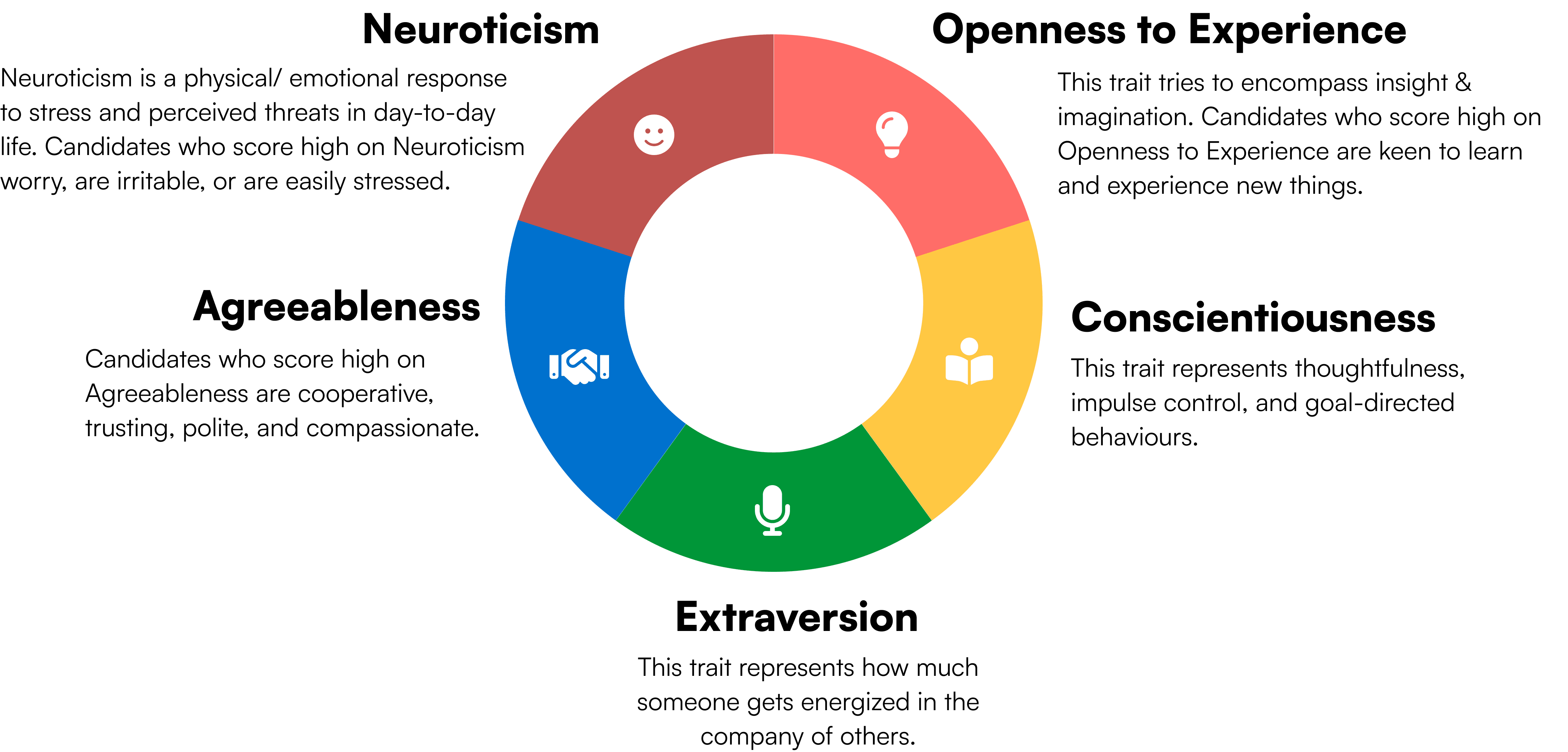
Albert Einstein, one of the most brilliant minds in history, didn't speak until he was four years old, and his teachers often thought he was slow because he would take his time to answer questions. This could be seen as an innate quality of deep thinking and introspection. However, his curiosity and passion for understanding the universe were acquired traits that he developed over time. Einstein once said, "I have no special talent. I am only passionately curious." His innate cognitive abilities, combined with his acquired love for learning and exploration, led him to develop the theory of relativity and fundamentally change our understanding of physics.
In the ever-evolving landscape of human resources and recruitment, understanding the interplay between innate and acquired qualities is paramount. These traits can significantly impact an individual's job performance and career trajectory. Let's dive deeper into the science and statistics behind these concepts and their implications for recruitment.
Innate Qualities: Born or Bred?
Innate traits or innate qualities are characteristics we are born with, largely determined by our genetic makeup. These include physical attributes, temperament, and certain cognitive abilities.
Research has consistently shown that innate traits can significantly influence work performance. A meta-analysis published in the Journal of Applied Psychology, which reviewed 428 studies involving over 40,000 participants, found that innate cognitive abilities were strong predictors of job performance across different occupations.
Moreover, a study in the American Economic Review, which analyzed data from over 10,000 individuals, revealed that those with higher levels of innate emotional stability and conscientiousness were 12% and 16% more likely, respectively, to excel in their careers.

Acquired Qualities: The Impact of Nurture
Acquired traits, on the other hand, are those we develop over time through learning and experience. They include skills, knowledge, attitudes, and behaviors that are shaped by our environment and experiences.
According to the World Economic Forum's Future of Jobs Report, 54% of all employees will require significant re- and upskilling. This underscores the importance of acquired traits such as adaptability and continuous learning in today's dynamic workforce.
Balancing Innate and Acquired Qualities in Recruitment
The challenge for recruiters and HR professionals is to balance the consideration of both innate and acquired traits during the recruitment process.
A study published in the International Journal of Selection and Assessment, which surveyed over 500 HR professionals, found that 72% considered innate traits when hiring, while 95% considered acquired traits. However, only 58% reported considering both in balance.
Wolfgang Amadeus Mozart was a musical prodigy with innate musical abilities that were apparent from a very young age. His extraordinary talent for composition and performance set him apart. On the other hand, Antonio Salieri, though not as naturally gifted, was known for his discipline, diligence, and acquired musical skills. While Mozart's works are often hailed as divine and intuitive, Salieri's compositions reflect careful craftsmanship and learned technique. This anecdote underscores the fact that both innate talent and acquired skills can lead to success, albeit in different ways.
For example, a sales role might benefit from someone with a naturally outgoing and persuasive personality, while a data analyst might need strong innate problem-solving abilities. However, a candidate with a strong willingness to learn and adapt may outperform a candidate with strong innate abilities but less motivation to grow and change.
Looking to hire problem solvers?
Thomas Edison, one of the most prolific inventors in history, was noted for his perseverance and work ethic, which are acquired traits. He once famously said, "Genius is one percent inspiration, ninety-nine percent perspiration." However, Edison also had an innate trait of hyper-focus, which allowed him to concentrate on his experiments and inventions for extended periods. His combination of innate focus and acquired perseverance resulted in significant inventions like the phonograph and the modern electric light bulb. This story highlights the importance of both innate and acquired traits in achieving success. They also underscore the fact that while we may be born with certain natural abilities, it's often our acquired traits - our habits, attitudes, and learned skills - that determine how far we go in our careers and in life.
A study published in the Journal of Vocational Behavior found that "learnability" - the desire and ability to quickly grow and adapt one's skill set - is one of the most critical predictors of career success. In fact, employees with high learnability had a 37% higher likelihood of receiving a promotion and a 32% higher likelihood of earning a high income.
The Future of Recruitment: A Holistic, Data-Driven Approach
In conclusion, both innate and acquired qualities play a significant role in determining an individual's job performance. As such, a holistic approach that considers both types of traits can lead to more effective recruitment strategies.
In the future, we can expect to see more sophisticated methods of assessing both innate and acquired traits. Advances in fields like psychometrics and machine learning are already enabling more accurate and comprehensive assessments of candidates' abilities and potential.
By understanding and leveraging the science and statistics behind innate and acquired traits, HR professionals and recruiters can make more informed decisions, ultimately leading to a more effective and successful workforce.
Remember, the key to successful recruitment isn't just about finding the right skills for the job, but also about finding the right person for the team and the company culture. By considering both innate and acquired traits, you can ensure you're hiring not just for the job today, but for the challenges of tomorrow.

Spending too much time screening candidates?
We make it easy for you to find the best candidates in your pipeline-
with a 40 min skills test.


